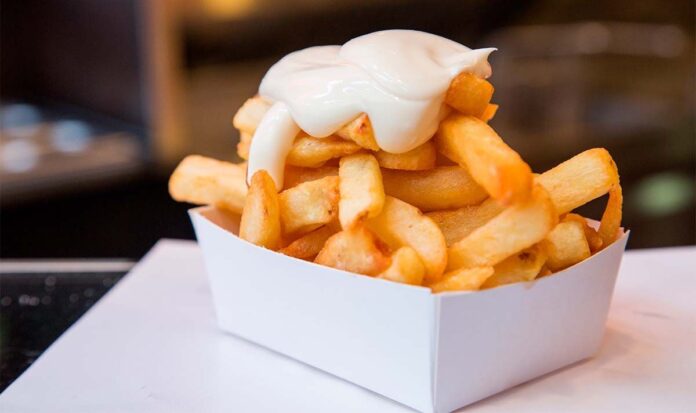While blood clots that form as a response to an injury can help stop potentially dangerous bleeding, not all clots spur on with good intentions. If the gel-like clumps crop up without a good reason, they can be extremely dangerous. Worryingly, your diet could be the very trigger for harmful clots, according to an expert.Whether you enjoy their salty flavour and crispy structure on their own or pair them with a meal, chips are a beloved classic.While there’s no doubt that their fat profile is no good news for your arteries, nutritionist Rory Batt from Marvin’s Den warned that eating too much of this popular food could increase your risk of blood clots.One type of blood clots is whipped up by atherosclerosis – a potentially serious condition in which your arteries become clogged with fatty substances called plaques.Once your blood vessels constrict as a result of plaque build-up, your blood flow and oxygen supply can also take the hit and become restricted.READ MORE: Acholic stools are ‘the most common’ sign of pancreatic cancer in ‘initial’ stages Blood clots: Chips ‘drive’ atherosclerosis that can lead to harmful clots – expert. (Image: GETTY)This in turn hikes your risk of blood clots that could block the flow of blood to your heart or brain, increasing your risk of heart attacks and strokes.The reason why chips can trigger this potentially harmful process comes down to their fat content.Mr Batt said: ‘Foods fried in vegetable oil can over time drive the process of atherosclerosis leading to blood clots.’They can raise LDL [cholesterol], but they also lead it to become oxidised which is a bad thing as this is the actual ‘bad’ cholesterol that leads to damaging of the artery walls and subsequent blockages of arteries.DON’T MISS ‘Almost all junk foods have some trace of vegetable oils’, including your beloved chips. (Image: GETTY) Your cough could reveal harmful blood clots. (Image: Express.co.uk)Apart from the fat in your chips, the amount of salt you use to season them could also be problematic for blood clots, according to Mr Batt.A study in a journal called Thrombosis Research tied excessive sodium intake to the development of blood clots.To stay on the safe side, the NHS advises that adults should eat no more than six grams of salt a day, which is the equivalent of around one teaspoon.Mr Batt added the warning signs of atherosclerosis to be aware of:Trouble breathingGeneral fatigueTenderness and pain in extremities like legs and armschest painsMuscle WeaknessPoor blood flow to brain resulting in confusion.


